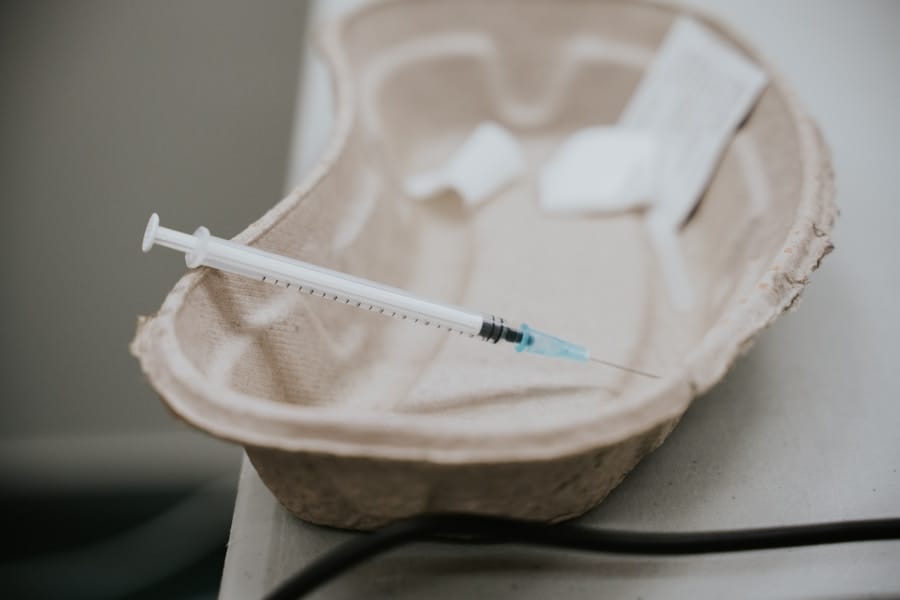Before embarking on the spiritual journey of Umrah, it is crucial for pilgrims to understand the health and vaccination requirements set forth by the Saudi Arabian government. These requirements are in place to ensure the safety and well-being of all pilgrims during their time in the holy cities of Mecca and Medina. One of the most important health requirements for Umrah is the mandatory vaccination against certain diseases. The Saudi Ministry of Health requires all pilgrims to be vaccinated against meningitis and seasonal influenza before entering the country. These vaccinations are essential in preventing the spread of these diseases among the large crowds of pilgrims that gather in the holy cities during Umrah season. Additionally, it is recommended that pilgrims also receive vaccinations for other common travel-related illnesses such as hepatitis A and B, typhoid, and polio. By understanding and adhering to these health and vaccination requirements, pilgrims can ensure a safe and healthy journey during their Umrah experience.
In addition to vaccinations, pilgrims should also be aware of other health requirements for Umrah, such as obtaining a medical certificate from a licensed healthcare provider. This certificate serves as proof that the pilgrim is in good health and free from any contagious diseases. It is important to note that this certificate must be issued no more than 72 hours before departure to Saudi Arabia. Pilgrims should also be mindful of their own health and well-being before embarking on Umrah, as the journey can be physically demanding. It is advisable for pilgrims to undergo a thorough medical check-up before traveling, especially if they have any pre-existing health conditions. By understanding and fulfilling these health and vaccination requirements, pilgrims can ensure a safe and fulfilling Umrah experience.
Navigating the Visa Application Process for Umrah
The visa application process is an essential step for pilgrims planning to undertake the spiritual journey of Umrah. Navigating this process can be complex, as it involves obtaining the necessary documentation and meeting the requirements set forth by the Saudi Arabian government. The first step in the visa application process is to obtain an endorsement from a licensed Umrah travel agent. This endorsement is required for all pilgrims and serves as a guarantee that the pilgrim has made all necessary travel arrangements through a licensed agent. Once the endorsement is obtained, pilgrims can proceed with the visa application process through the Saudi Arabian embassy or consulate in their home country. It is important for pilgrims to carefully review the visa application requirements and ensure that all necessary documentation, such as a valid passport and passport-sized photographs, are submitted with their application.
After submitting the visa application, pilgrims should be prepared to wait for the processing of their visa, which can take several weeks. Once the visa is approved, pilgrims will receive a visa authorization number, which they must present to their travel agent in order to obtain their visa. It is important for pilgrims to carefully review their visa upon receipt to ensure that all information is accurate and matches their travel plans. Navigating the visa application process for Umrah can be daunting, but with careful planning and attention to detail, pilgrims can successfully obtain their visa and prepare for their spiritual journey.
Required Vaccinations for US Pilgrims Going for Umrah
For US pilgrims planning to undertake the spiritual journey of Umrah, it is important to be aware of the required vaccinations before traveling to Saudi Arabia. The Centers for Disease Control and Prevention (CDC) recommends that all travelers to Saudi Arabia receive vaccinations against certain diseases to ensure their health and safety during their time in the country. One of the most important vaccinations for US pilgrims going for Umrah is the meningococcal vaccine, which is required by the Saudi Ministry of Health for all travelers entering the country for Umrah or Hajj. This vaccine protects against meningococcal disease, a serious bacterial infection that can cause meningitis and septicemia. In addition to the meningococcal vaccine, US pilgrims are also advised to receive vaccinations for other common travel-related illnesses such as hepatitis A and B, typhoid, and influenza.
It is important for US pilgrims to consult with their healthcare provider or a travel medicine specialist well in advance of their travel date to ensure that they are up-to-date on all recommended vaccinations. Some vaccines may require multiple doses or take time to become effective, so it is crucial for pilgrims to plan ahead and schedule their vaccinations accordingly. By taking the necessary precautions and receiving the required vaccinations, US pilgrims can protect themselves against potential health risks during their time in Saudi Arabia and ensure a safe and fulfilling Umrah experience.
Health and Safety Tips for Pilgrims During Umrah
During the spiritual journey of Umrah, it is important for pilgrims to prioritize their health and safety in order to fully immerse themselves in the experience. The crowded nature of the holy cities of Mecca and Medina during Umrah season can present certain health risks, so it is essential for pilgrims to take proactive measures to protect themselves. One of the most important health and safety tips for pilgrims during Umrah is to practice good hygiene and sanitation. This includes washing hands frequently with soap and water, using hand sanitizer when handwashing facilities are not available, and avoiding close contact with individuals who are sick. By maintaining good hygiene practices, pilgrims can reduce their risk of contracting infectious diseases and staying healthy throughout their journey.
In addition to practicing good hygiene, it is also important for pilgrims to stay hydrated and well-nourished during Umrah. The physical demands of performing religious rituals such as Tawaf and Sa’i can be taxing on the body, so it is crucial for pilgrims to drink plenty of water and eat nutritious meals to maintain their energy levels. Pilgrims should also be mindful of the extreme heat in Saudi Arabia and take precautions to avoid heat-related illnesses such as heat exhaustion and heatstroke. Wearing lightweight, breathable clothing, seeking shade when outdoors, and taking regular breaks are all important strategies for staying safe in hot weather. By following these health and safety tips, pilgrims can ensure a safe and fulfilling Umrah experience.
Preparing for Medical Emergencies During Umrah
While no one wants to think about experiencing a medical emergency during their spiritual journey of Umrah, it is important for pilgrims to be prepared for any unforeseen health issues that may arise. Being proactive and planning ahead can help pilgrims navigate medical emergencies with confidence and ensure that they receive prompt and appropriate care when needed. One of the most important steps in preparing for medical emergencies during Umrah is to familiarize oneself with the healthcare facilities available in Mecca and Medina. Pilgrims should research hospitals, clinics, and pharmacies in the area and keep a list of emergency contact numbers on hand in case they need medical assistance.
In addition to familiarizing themselves with local healthcare resources, pilgrims should also consider purchasing travel insurance that includes coverage for medical emergencies. Travel insurance can provide peace of mind by covering medical expenses, emergency medical evacuation, and other unforeseen costs related to healthcare while abroad. Pilgrims should carefully review their insurance policy to understand what is covered and how to access assistance in the event of a medical emergency. It is also advisable for pilgrims to pack a small first aid kit with essential supplies such as bandages, antiseptic wipes, pain relievers, and any prescription medications they may need during their journey. By taking these proactive measures, pilgrims can prepare for medical emergencies during Umrah and ensure that they have access to necessary care if the need arises.
Communicating with Healthcare Providers While in Saudi Arabia
For US pilgrims traveling to Saudi Arabia for Umrah, it is important to have a plan in place for communicating with healthcare providers while abroad. In the event of a medical emergency or if medical care is needed during their time in Mecca or Medina, it is essential for pilgrims to be able to effectively communicate with local healthcare professionals. One of the most important steps in preparing for this scenario is to have a basic understanding of Arabic or have access to translation services. While many healthcare providers in Saudi Arabia may speak English, having some knowledge of Arabic can help facilitate communication and ensure that important information is accurately conveyed.
In addition to language considerations, US pilgrims should also be prepared to provide relevant medical information to healthcare providers in Saudi Arabia if needed. This may include carrying a copy of their medical history, a list of any chronic conditions or allergies, and information about any medications they are taking. Pilgrims should also have contact information for their primary care physician in the US readily available in case it is needed by local healthcare providers. By taking these proactive steps to prepare for communicating with healthcare providers while in Saudi Arabia, US pilgrims can ensure that they receive appropriate care if they encounter any medical issues during their time in Mecca or Medina.
Returning to the US: Post-Umrah Health and Vaccination Considerations
After completing their spiritual journey of Umrah in Saudi Arabia, US pilgrims should be mindful of certain health and vaccination considerations upon returning home. It is important for pilgrims to monitor their health in the weeks following their return from Umrah and seek medical attention if they develop any symptoms of illness. This is particularly important given the potential for exposure to infectious diseases while traveling abroad. Pilgrims should also be aware of any post-travel health recommendations from the CDC or other relevant authorities related to their time in Saudi Arabia.
In addition to monitoring their health, US pilgrims should also consider any necessary post-travel vaccinations upon returning from Umrah. Depending on their specific travel itinerary and activities while abroad, pilgrims may need additional vaccinations or booster doses upon returning home. It is advisable for pilgrims to consult with their healthcare provider or a travel medicine specialist upon returning from Umrah to review their vaccination history and determine if any additional vaccinations are needed. By being proactive about post-Umrah health considerations, US pilgrims can ensure that they maintain good health following their spiritual journey and continue to prioritize their well-being long after returning home from Saudi Arabia.
In conclusion, understanding health and vaccination requirements, navigating the visa application process, preparing for medical emergencies, communicating with healthcare providers while abroad, and considering post-Umrah health considerations are all essential aspects of ensuring a safe and fulfilling Umrah experience for US pilgrims. By taking proactive measures and prioritizing their health and safety throughout their journey, pilgrims can embark on this spiritual pilgrimage with confidence and peace of mind.

